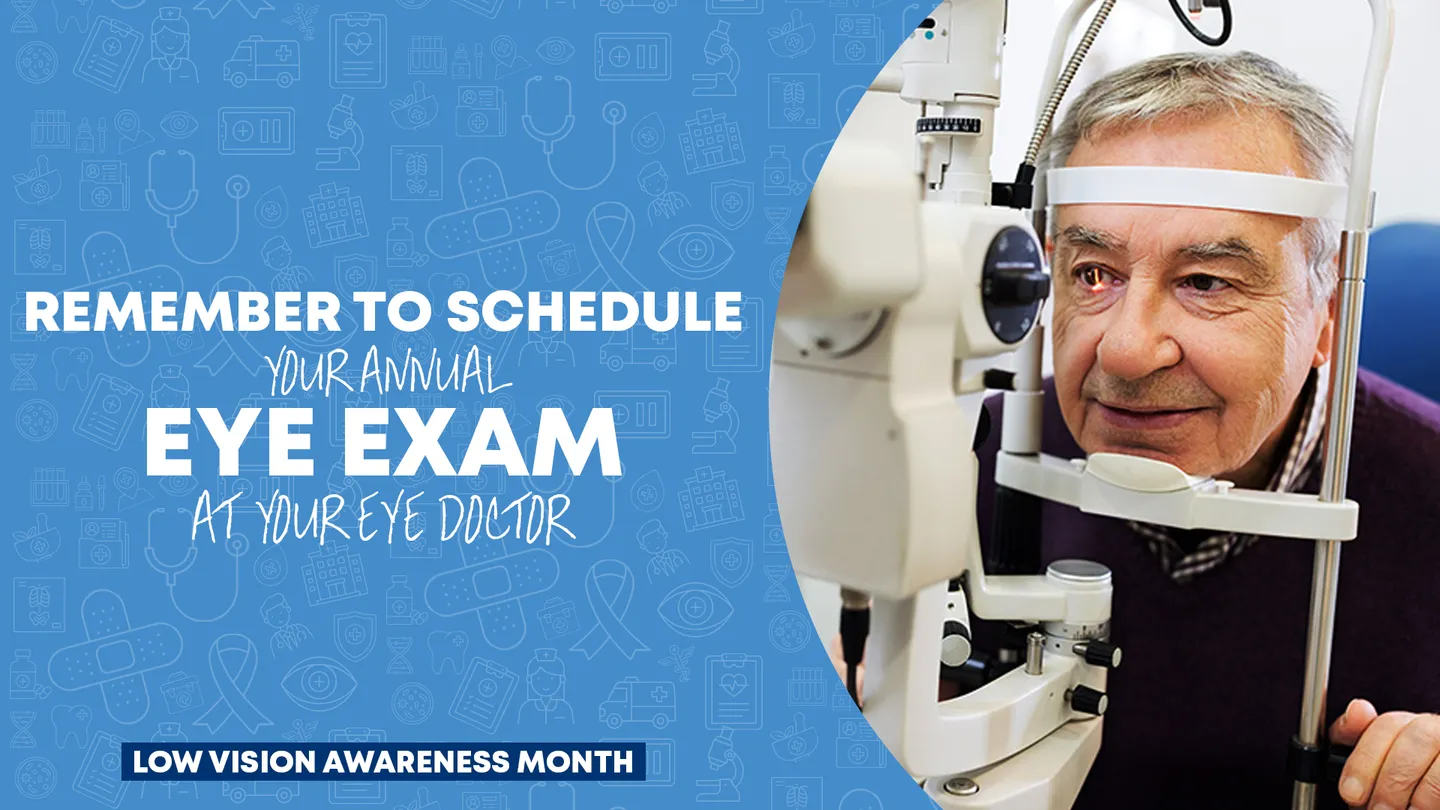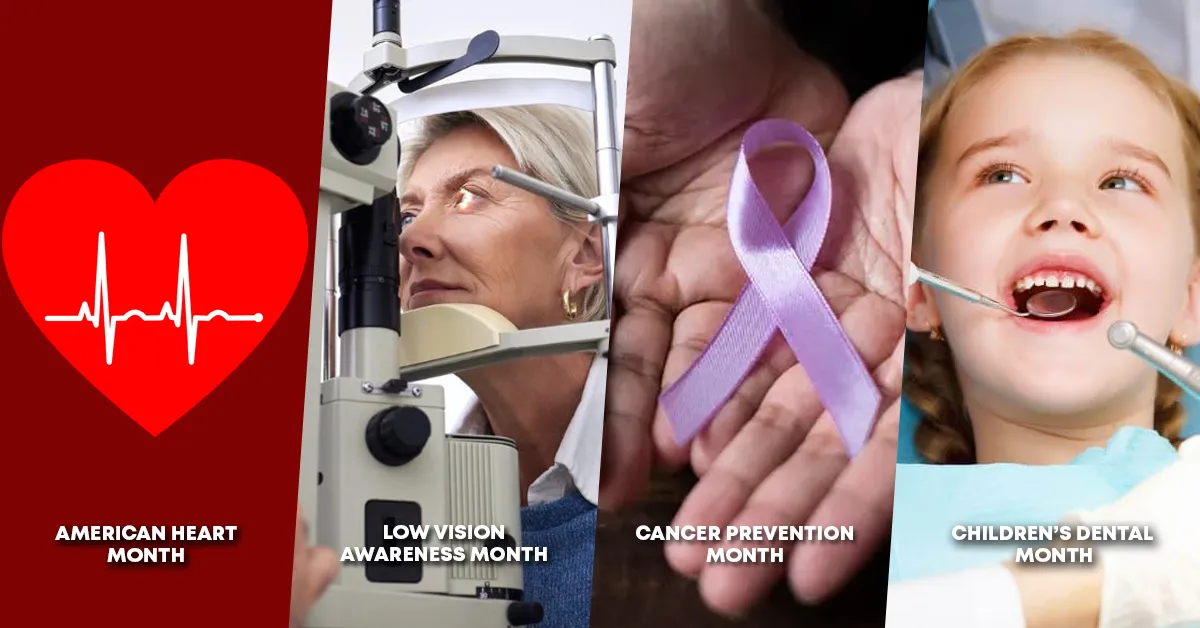With Valentine’s Day taking place in February, it makes it even more fitting that it’s heart month! But there are a few more health months observed in February including Low Vision Awareness Month, Cancer Prevention Month, and Children’s Dental Month.
Learn about February’s national health observances so you can get important reminders, and interesting facts, and make small changes for your health this month!
American Heart Month
The first Friday in February is recognized as “National Wear Red Day” to highlight the year-round importance of heart health. After all, your heart never takes a break – it’s the only muscle that never tires.
American Heart Month highlights the three common risk factors of heart disease: high blood pressure, high cholesterol, and previously/currently a smoker. Half of Americans have at least one of these risk factors.
The Texas Heart Institute estimates your chance of dying of heart disease is now as high as 1 in 3. It sounds grim, but your heart is that important. Take action to care for your heart with healthy eating, and exercise, and if you currently smoke, find the help you need to stop.
Low Vision Awareness Month

Low Vision Awareness Month raises awareness for vision loss that is not correctable by glasses or any standard treatment. The majority of people who experience low vision are over the age of 65.
Causes for low vision commonly are macular degeneration, diabetic retinopathy, cataracts, or glaucoma.
While low vision may not be correctable, low vision specialists can help patients get the most out of the remaining vision they have.
Cancer Prevention Month
In 2023, an estimated 2 million Americans were diagnosed with cancer according to the American Association for Cancer Research (this figure does not include non-melanoma skin cancer).
While no cancer is 100% preventable, an estimated 40% of all cancers can be prevented. Some cancers can be greatly prevented via vaccinations (like the HPV vaccine for cervical cancer) or the use of preventative measures like sunscreen use to decrease skin cancer risk. If you currently smoke, quitting can greatly reduce your risk of multiple forms of cancer.
Lastly, diet, weight, and exercise, all play an underlying role in many types of cancer. Ensuring you make healthy choices in these aspects of your life can also help decrease risk.
Children’s Dental Month
Stanford Health recommends children begin going to the dentist at a year old. Children’s Dental Month highlights the important role parents play in caring for kid’s teeth.
Parents can help keep children’s teeth healthy by brushing their teeth twice a day, limiting foods with added sugars, and avoiding putting babies to bed with a bottle.
Your child may get some fluoride as a part of the water local water supply if you have city water. However, by age 2 or older, children should be using toothpaste with fluoride to help in preventing cavities.


